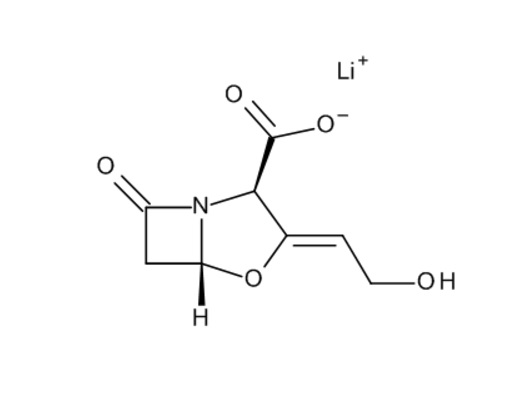STRONTIUM ARSENIDE
- CAS NO.:39297-24-0
- Empirical Formula: AsH2Sr
- Molecular Weight: 164.56
- MDL number: MFCD00054066
- EINECS: 254-407-5
- SAFETY DATA SHEET (SDS)
- Update Date: 2022-08-26 12:00:45

What is STRONTIUM ARSENIDE?
Description
Strontium Arsenide, Sr3As2, may be prepared by the
reaction of the elements or by the reduction of strontium
arsenate. The latter method is best accomplished by
rapidly heating with carbon to 1500 to 1600 °C. If the
heating is slow, reduction begins at about 800 °C
yielding first the arsenite, arsenic then being lost and
strontium oxide formed:
3Sr + 2As + heat ? Sr3As2
2Sr3AsO4 + 4C + heat ? Sr3As2 + 3SrO + 3CO + CO2
Strontium arsenide forms reddish-brown crystals,
transparent in thin sections, with a density of 3.23 g/
cm3. It has the CAS number 39297-24-0. Its molecular
weight is 1167.9668 g/mol. It decomposes in contact
with water, forming strontium hydroxide with liberation
of arsine. It burns brilliantly when heated in oxygen or
sulfur vapor. It reacts with fluorine at room temperature
with incandescence and formation of arsenic trifluoride.
Similar reactions occur with chlorine at 160°C, with
bromine at 200 °C, and with iodine vapor at a higher
temperature. It is a powerful reducing agent and attacks
most metallic oxides and oxidizing agents.
It is considered as a “Dangerous Substance for the
Environment” and is prohibited in Europe by the EEC.
Properties of STRONTIUM ARSENIDE
| EPA Substance Registry System | Strontium arsenide (Sr3As2) (39297-24-0) |
Safety information for STRONTIUM ARSENIDE
| Signal word | Danger |
| Pictogram(s) |
 Flame Flammables GHS02  Corrosion Corrosives GHS05  Skull and Crossbones Acute Toxicity GHS06 |
| GHS Hazard Statements |
H226:Flammable liquids H301:Acute toxicity,oral H315:Skin corrosion/irritation H318:Serious eye damage/eye irritation |
| Precautionary Statement Codes |
P210:Keep away from heat/sparks/open flames/hot surfaces. — No smoking. P233:Keep container tightly closed. P240:Ground/bond container and receiving equipment. P241:Use explosion-proof electrical/ventilating/lighting/…/equipment. P242:Use only non-sparking tools. P243:Take precautionary measures against static discharge. P264:Wash hands thoroughly after handling. P264:Wash skin thouroughly after handling. P270:Do not eat, drink or smoke when using this product. P280:Wear protective gloves/protective clothing/eye protection/face protection. P303+P361+P353:IF ON SKIN (or hair): Remove/Take off Immediately all contaminated clothing. Rinse SKIN with water/shower. P332+P313:IF SKIN irritation occurs: Get medical advice/attention. P370+P378:In case of fire: Use … for extinction. P405:Store locked up. P403+P235:Store in a well-ventilated place. Keep cool. |
Computed Descriptors for STRONTIUM ARSENIDE
New Products
4-AMINO-TETRAHYDRO-PYRAN-4-CARBOXYLIC ACID HCL 4-(Dimethylamino)tetrahydro-2H-pyran-4-carbonitrile 4-Aminotetrahydropyran-4-carbonitrile Hydrochloride (R)-3-Aminobutanenitrile Hydrochloride 3-((Dimethylamino)methyl)-5-methylhexan-2-one oxalate 1,4-Dioxa-8-azaspiro[4.5]decane 5-Bromo-2-nitropyridine Nimesulide BP Aceclofenac IP/BP/EP Diclofenac Sodium IP/BP/EP/USP Mefenamic Acid IP/BP/EP/USP Ornidazole IP Diclofenac Potassium THOMAIND PAPER PH 2.0 TO 4.5 1 BOX BUFFER CAPSULE PH 9.2 - 10 CAP SODIUM CHLORIDE 0.1N CVS ALLOXAN MONOHYDRATE 98% PLATINUM 0.5% ON 3 MM ALUMINA PELLETS (TYPE 73) LITHIUM AAS SOLUTION 2-Bromo-1-(bromomethyl)-3-chloro-5-nitrobenzene 2-Bromo-3-nitroaniline N-(3-Hydroxypropyl)-N-methylacetamide 3-Bromo-6-chloropyridazine 4-ethyl-3-nitrobenzoic acidRelated products of tetrahydrofuran








You may like
-
 1-Methyl-6-oxo-1,6-dihydropyridazine-3-carbonitrile 98%View Details
1-Methyl-6-oxo-1,6-dihydropyridazine-3-carbonitrile 98%View Details
99903-60-3 -
 88491-46-7 98%View Details
88491-46-7 98%View Details
88491-46-7 -
 1823368-42-8 98%View Details
1823368-42-8 98%View Details
1823368-42-8 -
 2-(3-(tert-butyl)phenoxy)-2-methylpropanoic acid 1307449-08-6 98%View Details
2-(3-(tert-butyl)phenoxy)-2-methylpropanoic acid 1307449-08-6 98%View Details
1307449-08-6 -
 Ethyl 3-(furan-2-yl)-3-hydroxypropanoate 25408-95-1 98%View Details
Ethyl 3-(furan-2-yl)-3-hydroxypropanoate 25408-95-1 98%View Details
25408-95-1 -
 2-Chloro-5-fluoro-1-methoxy-3-methylbenzene 98%View Details
2-Chloro-5-fluoro-1-methoxy-3-methylbenzene 98%View Details
1805639-70-6 -
 1784294-80-9 98%View Details
1784294-80-9 98%View Details
1784294-80-9 -
 Lithium ClavulanateView Details
Lithium ClavulanateView Details
61177-44-4